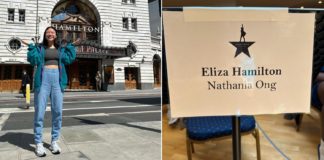Man Jailed After Taking Upskirt Videos In May 2017, Applies For Singapore Bar In 2023
As society expects lawyers to have high standards of integrity, those aspiring to the Singapore Bar must first prove that they’re of good character. To that end, a man who served jail time for taking upskirt videos has proven worthy of admission to the Bar.

The judge said he has reformed his character since his offence.
Man recorded upskirt videos of woman on public transport
In a judgement laid out on Monday (9 Oct), it was noted that Mr Chester Lee Jun Ming recorded two upskirt videos of a woman on public transport in May 2017.
He pleaded guilty in January 2018 and the court convicted him of one charge of insulting the modesty of a woman.

Source: Angelica Reyes on Unsplash
The judge took into consideration another charge of the same offence for the purpose of sentencing.
Mr Lee eventually received a one-month prison sentence.
Man applies for Singapore Bar after conviction for upskirt videos
In 2023, Mr Lee applied for admission as an advocate and solicitor of the Supreme Court.
Chief Justice Sundaresh Menon heard his application on 22 Sep.
Considering Mr Lee’s past, the judge had to find out whether he had a “deficit of character” at the time of his application.
Chief Justice Menon noted that Mr Lee’s offence entailed “a severe violation of the dignity and bodily integrity of the victim” that often causes deep-seated trauma, saying,
Someone capable of committing such an offence will almost invariably be found to be unfit for admission as an advocate and solicitor in terms of his character.
Applicant not the same person now: Judge
However, Chief Justice Menon found that Mr Lee is not the same person as he was when he committed the upskirt offences.
A number of factors made him arrive at this conclusion: One was that he complied with MRT staff’s instructions at the time of his offence, and admitted his wrongs to the police.
He also expressed remorse for his actions, pleading guilty to the offences.
In the six years since he committed the offence — a significant period of time, the judge said — he maintained a clean record and took steps to improve himself.
He did this by maintaining a full-time job after his release, graduating from law school, passing the bar examinations and completing a practice training contract.
Additionally, Mr Lee managed to get character references from two people who knew of his offence. One of them, his immediate supervisor, was of the opinion that he’d learnt from his mistakes and reformed his character.
When he applied for the Bar, he made full disclosure of his offence and didn’t try to downplay his culpability in any way. He admitted that what he had done was “wrong, despicable, and disrespectful to women”.
Thus, Chief Justice Menon allowed his applications, explaining,
I was satisfied that Mr Lee had reformed his character since his offence and was a fit and proper person for admission to the Bar.
2 other applicants who committed plagiarism also make it to Bar
Besides Mr Lee, the Chief Justice heard two other applications to the Bar.
One of them was Mr Chong Weng Teng, who committed “self-plagiarism”. That means he submitted a research paper that reused parts of another research paper he had previously submitted for another module.
The other applicant was Ms Lin Shuang Ju, who plagiarised by failing to appropriately attribute the work of an attorney in the United States (US).
In Mr Chong’s case, Chief Justice Menon accepted that he wasn’t dishonest. Instead, he was genuinely unaware that what he had done was against university rules.
In Ms Lin’s case, she wrote a letter of apology to the attorney that came across as genuine. The Chief Justice thus accepted that her plagiarism was due to a misunderstanding and not dishonesty.
All in all, he found both of them to be suitable for admission to the Bar.
Applications received no objections
All three applications received no objections from the Attorney-General, the Law Society of Singapore and the Singapore Institute of Legal Education.
These stakeholders likewise expressed their satisfaction that the applicants were fit for the Singapore Bar, in terms of their characters.
We wish the three new lawyers all the best in their careers.
Also read: 6 Law Grads Found Cheating In S’pore Bar Exam, Judge Delays Their Admission
6 Law Grads Found Cheating In S’pore Bar Exam, Judge Delays Their Admission
Have news you must share? Get in touch with us via email at news@mustsharenews.com.
Featured image by MS News.

Drop us your email so you won't miss the latest news.










